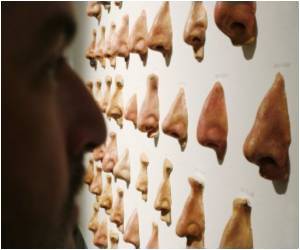An electronic nose could be used to diagnose obstructive sleep apnea, say researchers.

Electronic nose devices have been shown to distinguish between a number of diseases; they do this by analysing the pattern of volatile organic compounds in breath samples. This is the first study that has assessed whether the electronic nose could be used to confirm the presence of sleep apnoea.
Researchers analysed the breath of 40 sleep apnoea patients and 20 healthy controls. Sleep apnoea is associated with inflammation in the upper airways, which the researchers suggested could be detected by analysis of the exhaled breath of the patients. The study also aimed to assess whether the electronic nose could detect the effects of the standard treatment for sleep apnoea i.e. continuous positive airway pressure (CPAP).
The researchers performed questionnaires and sleep examinations to confirm sleep apnoea in 40 patients. They also collected throat washings from patients to measure any improvement in their condition following treatment with CPAP. The researchers then used a statistical analysis model to calculate the accuracy of the electronic nose.
The results found that the electronic nose could effectively diagnose sleep apnoea. The statistical analysis showed that sleep apnoea was detected with a sensitivity of 93%.
Lead author, Dr Timm Greulich, from the Marburg Hospital in Germany, said: "This is the first time an electronic nose has been tested in the setting of sleep apnoea diagnosis. The electronic nose could be useful in two ways. First, it can rule out the disease in a low prevalence population. Secondly, in a population with a high risk of sleep apnoea, the device could be used to help decide who would need to undergo an overnight sleep examination. Following these results, we foresee that the use of an electronic nose could reduce costs by more appropriately selecting patients who require the sleep examination."
Source-Eurekalert
 MEDINDIA
MEDINDIA




 Email
Email










